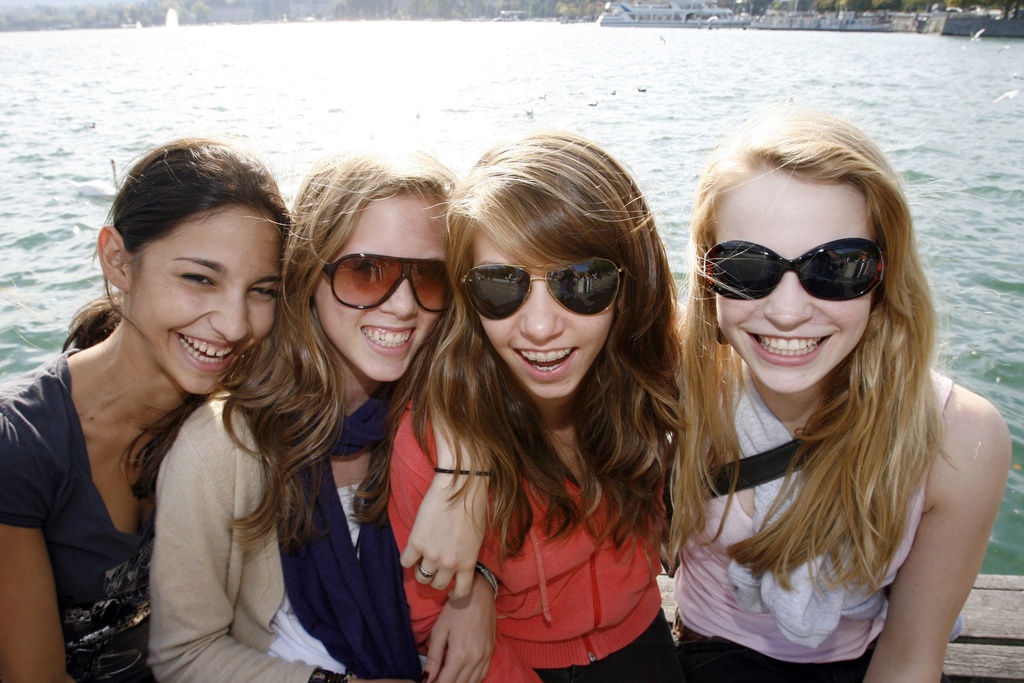
Young women “have as much self-esteem” as men

Swiss researchers have found that, contrary to popular belief, there is no significant difference in women and men’s self-esteem in adolescence and young adulthood.
They say the results could help iron out misconceptions that men have more feelings of self-worth than women, which could lead to self-esteem problems among young males being overlooked.
Scientists from Basel University looked at data from the young adults section of the National Longitudinal Survey of Youth from the United States to see how young people’s self-esteem – defined as a person’s appraisal of his or her value – developed over time.
A sample of 7,100 individuals aged 14-30, of which 49 per cent were female, was assessed every two years from 1994-2008. Overall, 37 per cent were white, 32 per cent black, 20 per cent Hispanic and 11 per cent other ethnicities.
The results were published earlier in July in the online version of the American Psychological Association’s (APA) Journal of Personality and Social Psychology.
Researchers, led by psychologist Ruth Yasemin Erol, looked at how five personality traits – openness, conscientiousness, extraversion, agreeableness and neuroticism – affected self-esteem. They also considered the subjects’ sense of mastery (perception of control over one’s life), risk-taking tendencies, gender, ethnicity, health and income.
“The results showed that, on average, self-esteem increases during adolescence and young adulthood,” Erol told swissinfo.ch in email comments.
“However, there were important individual differences (with some individuals having less favourable self-esteem trajectories) and we therefore tested which factors explain individual differences in the development of self-esteem.”
Surprising finding
Surprisingly, the team did not find any difference between male and female levels of self-esteem during the life phases measured, said Erol, which is in contrast to previous research finding higher levels among men.
This was significant, she said, as it “may help to decrease the substantial costs of false beliefs, such as overlooking self-esteem issues in male adolescents”.
Differences were found, however, among different segments of the population. For example, Hispanics had lower self-esteem than blacks or whites in adolescence, but by age 30 showed confidence at higher levels than whites. At age 30, whites also trailed blacks in terms of self-esteem, according to the study.
Overall, mastery was found to be an important factor for self-esteem. Income, on the other hand, was not. Other important indicators were emotional stability, extroversion and conscientiousness.
Erol said that the US-data results were likely to be replicated in European countries. Future research should, however, concentrate on other cultures, such as Asia and Africa.
“For example, individuals from Asian cultures show a lower need for self-esteem than people from Western countries, which may have consequences for the average self-esteem trajectory.”
Life phase change
Commenting on the study’s results, Urs Kiener, from the children’s charity Pro Juventute, said it confirmed that self-esteem was not affected by gender but by self-assuredness levels.
“Passing into a new life phase – from an adolescent to a young adult or, later, from an active adult to a pensioner – leads to insecurity and, as a result, a weakening of self-confidence,” he told swissinfo.ch in a statement.
Adolescents know how they are expected to behave, said Kiener, a child and youth psychologist who heads Pro Juventute’s telephone advice line 147.
But expectations of them suddenly change upon adulthood, he said. This can leave some young people unsure about adult behaviour. The result: acting up – and criticism.
“Their self-worth naturally gets a battering and is only rebuilt when they conform to their new role,” Kiener said.
“Everybody needs a certain amount of self-assurance to get on in life.”
Self-Esteem Development From Age 14 to 30 Years: A Longitudinal Study by Ruth Yasemin Erol, and Ulrich Orth was published in the APA’s Journal of Personality and Social Psychology in the online version on July 4. It will be published in the journal shortly.
The American Psychological Association (APA), in Washington, D.C., which publishes the journal, is the largest scientific and professional organisation representing psychology in the United States and is the world’s largest association of psychologists.
Erol, who has an M.Sc, and Orth, an assistant professor, are both part of the Department of Psychology at Basel University.

In compliance with the JTI standards
More: SWI swissinfo.ch certified by the Journalism Trust Initiative



























You can find an overview of ongoing debates with our journalists here . Please join us!
If you want to start a conversation about a topic raised in this article or want to report factual errors, email us at english@swissinfo.ch.